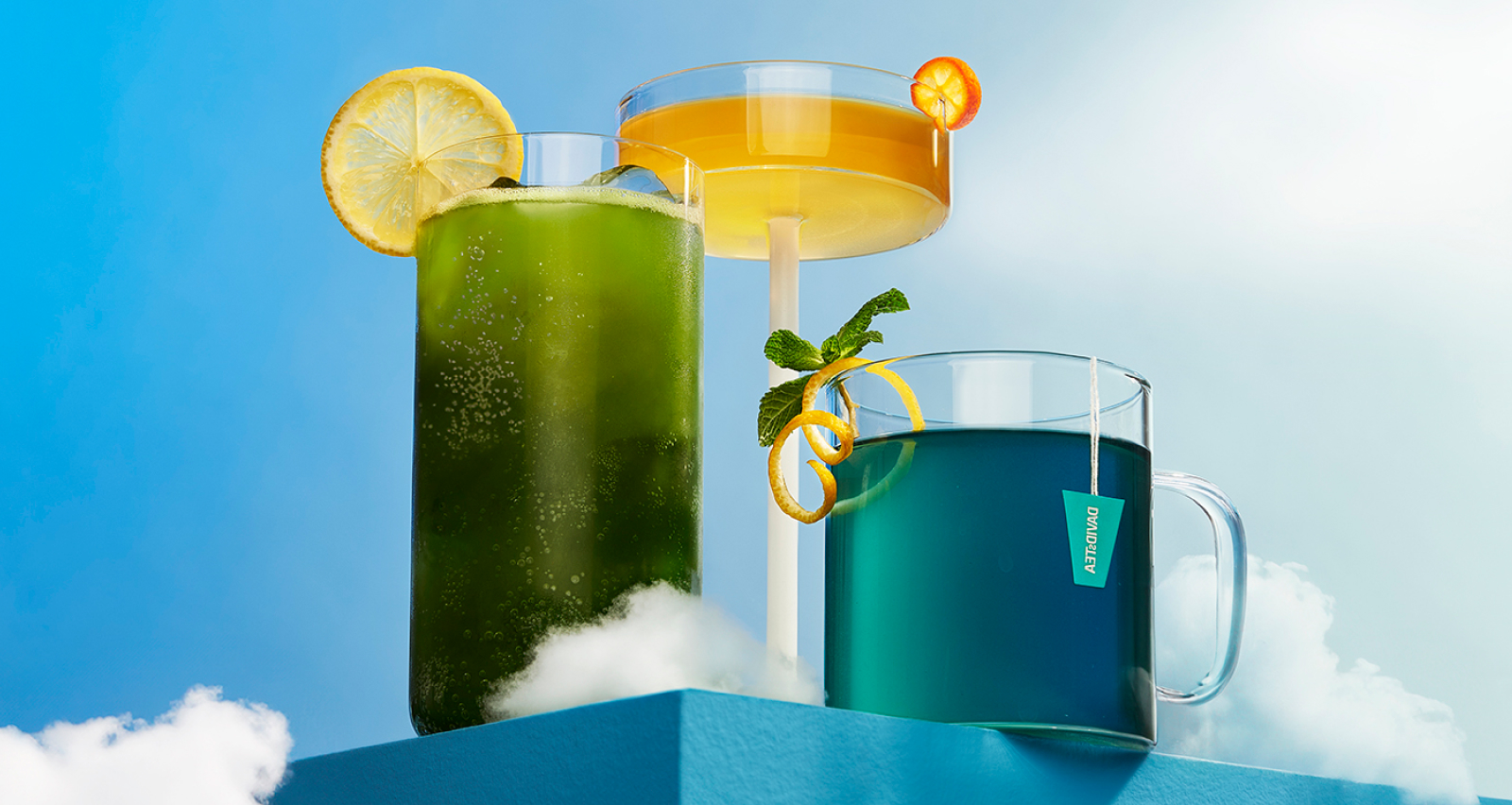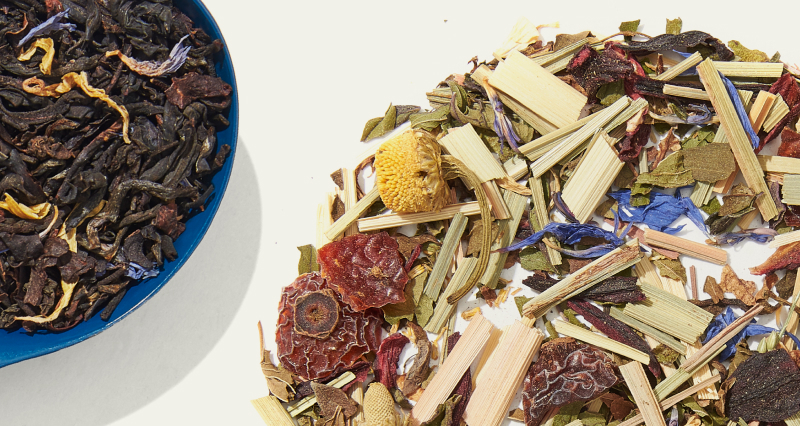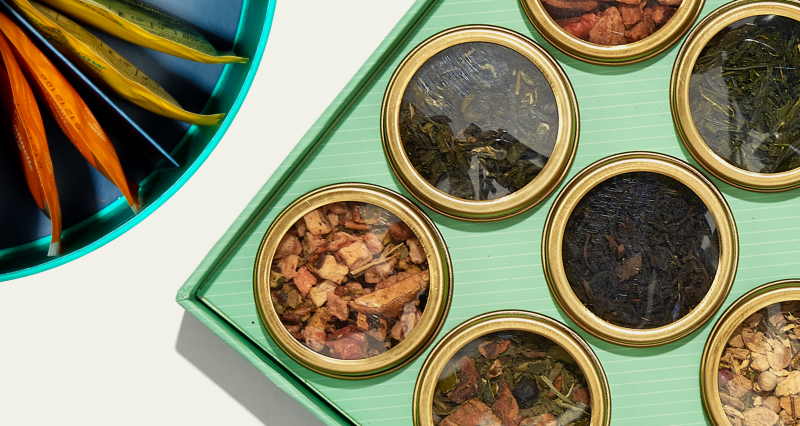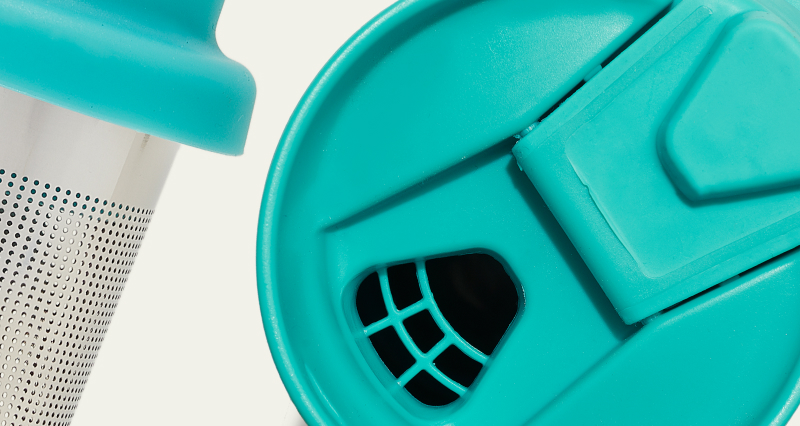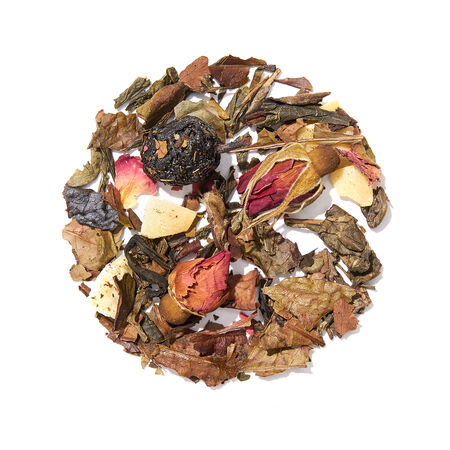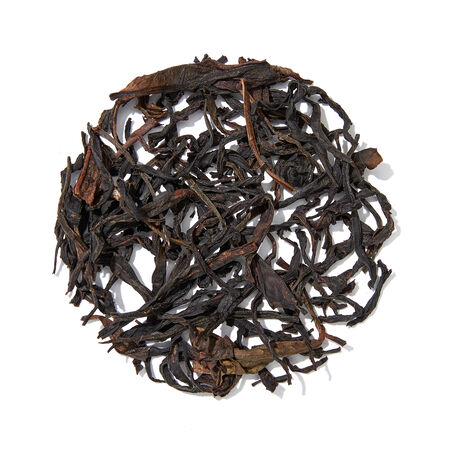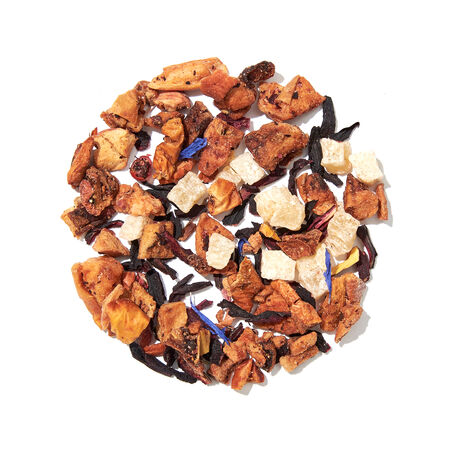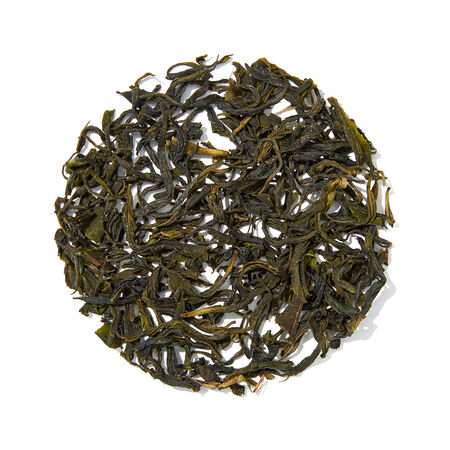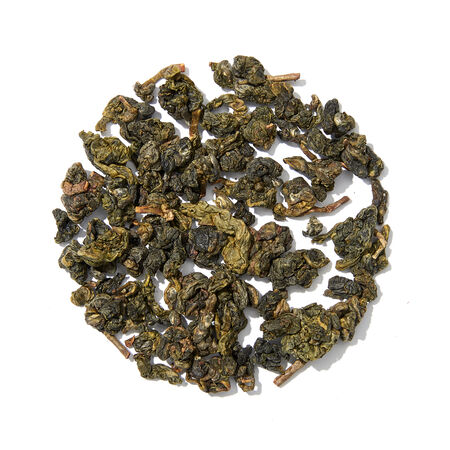season 2 | ep. 9
how to introduce tea
to non-tea drinkers
with Carolina Levy

steeping together podcast
- season 2 | Ep. 9
how to introduce tea to non-tea drinkers
with Carolina Levy
episode transcript
Marika de Vienne 0:18
Welcome, everyone to another episode of Steeping Together, the podcast where we explore the vast world of tea over a cup of tea with tea enthusiast, I'm your tea-obsessed host Marika. And I am as usual, terribly excited to be with you all today. So here at Steeping Together, we have explored a great many facets of the tea world from sleep ingredients to the creation of tea flavours. But one of the things we have yet to delve into is how to introduce our most beloved beverage to newcomers. How do you get a person or a community of people into the most fascinating world of tea? Do you start by explaining the history? Do you wax philosophical about the benefits and the details of every single leaf? Or do you just encourage people to just try it again and again, until they finally discover the perfect cup. So in order to get to the very heart of the matter, we've invited Carolina Levy of Soy Té, so that she may tell us of her experience bringing the joys of tea to her community of tea drinkers in Mexico and other countries in South America. Welcome Carolina!
Carolina Levy 1:25
Thank you so much for having me, Marika! I'm so excited to be here with you today.
Marika de Vienne 1:30
I am so excited. I mean, I'm always excited, but I'm particularly excited because of the journey of you and your tea company really helps us to broaden our horizons beyond Canada and the United States today. And it's just really, really exciting to get to speak to a broader audience and to get your insights. So before we go any further would you care to introduce yourself the way you'd like to be introduced?
Carolina Levy 1:58
My name is Carolina, I started Soy Té, my tea company, actually, 10 years ago–
Marika
Congrats!
Carolina
On the first of February, the same day of the tiger, tiger year. It's our 10 year anniversary, so I'm really excited about that. And then I was working for the Mexican government and I actually had the pleasure to travel around rural Mexico. So I was able to see all the fruit that was being grown and many of the herbs that were harvested around the country, and I just got this sudden interest of doing something with that product, because it's very sad to think that 40% of our food, fresh food goes to waste. It was a really good way to preserve food, obviously.
Marika de Vienne 2:51
It's a bummer to hear that fact, that reality of how much fresh delicious food just simply goes to waste. But I'm gonna, I'm gonna keep it light, I'm gonna keep it happy for the moment! Because I have been to Mexico several times, particularly in sourcing spices and also just as a tourist, as someone who enjoys you know, this country so, so much. And what I found every single time I went to Mexico was the biodiversity of the food and the diversity of the cuisine is astounding. It's astounding the variety of flavours, the variety of foods, the traditional processes to transform and create new dishes in Mexico. To me, it's one of the top three culinary destinations of the world because of the terroir but also because of its history with food, It's just an absolutely fascinating place.
Carolina Levy 3:54
Yeah, I have to agree because without Mexico, Chinese food or Indian food would be so different because they will not have any chili and I cannot conceive Chinese food or Indian food without chili. I’m like what?
Marika de Vienne 4:08
I once asked a culinary historian where Sichuan province in China would be without the chili and he said they would they would be a completely different people. They would be–their identity is so linked to the combination of Sichuan peppercorns in combination with chilis, they would have a completely different culture. And that's the impact. And we wouldn't even have vanilla. We'd have no vanilla without Mexico!
Carolina Levy 4:38
Yeah, no vanilla! Chocolate is debatable because the more research it's done, it's now clear that it was actually from Ecuador or Brazil. I still take some credit for chocolate obviously,
Marika de Vienne 4:54
I will absolutely give credit to Mexico and to Oaxaca particularly for the art of transformation of cocoa is unparalleled. The smells of the spices being combined with the chocolate is one that still haunts me in the most wonderful way! But all this to say, Mexican culture, Mexican people, South American culture in general, has intense contact with a variety of flavours, be it from the fresh fruit to the spices to the cocoa. There is a real interesting diversity in what people are able to taste and appreciate. But tea is not traditionally part of that culinary history. So 10 years, you started Soy Té 10 years ago, congratulations, in a market that is not abounding with tea drinkers.
Carolina Levy 5:54
Yeah, definitely tea you see it on the grocery store, always tea bags. When you open them up, you don't necessarily find tea in them, but I think you can find in the grocery store, which I think it's typical for most places. But the thing that we do take very seriously in Mexico is herbolaria, which is the science of, like India has its ayurvedic or ayurveda medicine. And Mexico has herbolaria. And we actually have a college called Chapingo, which gives you, you can basically do a PhD on herbs. And when the Spaniards came to Mexico to conquer us, it's very interesting that they saw a really interesting book that only talks about herbs. It had a lot of the drawings of the different herbs, it has 585 herbs, I think, and they all talked about the different properties or healing benefits that each herb or each plant had. So it's been in our culture forever, that we take plants and herbs very seriously into how they can heal us. So although tea is not part of our culture, infusions are a part of our culture, and obviously everyone calls it tea or calls them tea, but it doesn't really matter. Like we are not, he's not here to be telling people how to call their infusions, right, like, oh, chamomile is not tea, it’s infusion! Like yeah, whatever. So I think, through the great tradition of herbs and medicinal properties that people see in herbs, is how we've been connecting with people overall, at least to gain their interests, and obviously through fruit tisanes.
Marika de Vienne 7:51
So yeah, when I was saying, you know, introducing tea, I was referring to Camellia sinensis. But I completely agree with you that there is no real need to bucket or alienate any type of infusion. Essentially, if you have a dry leaf or a dry fruit, and you're adding hot water to it to make a cup of something you enjoy, you're enjoying tea. So with this background of herbal infusions, being a part of the community, what were your biggest challenges in introducing Camellia sinensis from China or be it from India or anywhere else. You were introducing an external herb, tea is an herb, this external plant to this community? How were you able to share that passion and share that love of tea?
Carolina Levy 8:43
Through tea education, because I think one of the most important things and why people are so reluctant to drink tea, at least in Latin America, is because when they tried to make it at home, usually it's too bitter, or too flavourless or they don't really know how to do it. So it's like, why would I waste my money, buying this plant, and then trying to make it if the flavour is not going to be good, or it's gonna be something that I don't like. If I can drink tea then I will just run to the grocery store and buy one of the RTD beverages and that's going to be much easier. So through tea education, actually, the pandemic was a huge part of it. Because before we of course, gave many classes and everything was in person. Because I was so reluctant to do anything online because it's like, no, it's an experience that you need to taste and you need to smell and like how can you do this online. But with the pandemic, we had to switch online. And we've offered so many classes that I think it's been a great gateway for people to actually start drinking tea at home and just make their cups every day. So it's very, I don't know, I enjoy people seeing older videos because now I get tagged on TikTok when people are just making their cup of tea at home. I'm like, Oh, great!
Marika de Vienne 10:07
I love your TikTok, just an aside, I love your TikTok because it's absolutely disarming and very inclusive of showing people, Hey, if you don't have a special tool to make a tea, use this. Do you have a strainer at home? Do you have a different kind of spoon? Do you have a fork? You can make it happen. So I really enjoyed your TikToks in terms of like democrat–
Carolina Levy 10:33
Democratising tea?
Marika de Vienne 10:37
Thank you! Yes, exactly, in making it accessible to everyone. Because I think that there is this preconceived notion that if you don't know all the tricks and tips, you're never going to be able to appreciate true tea. And to your earlier point, tea education is crucial, because you do need a few things to go by, you know, water temperature is one of them, so you don't make your tea too bitter. Steeping time, all of those kinds of things are helpful, but you don't need to spend $1,000 on equipment to make the perfect cup of tea. It's still leaves in hot water. Like, let's take it down a notch, you know, like, it's for everyone.
Carolina Levy 11:17
Yeah, especially because Canada is also extremely diverse in terms of its weather, but it's mostly cold. But it's extremely diverse in terms of elevation, and we have the desert, then we have really high mountains. So it's also very important to tell people that water doesn't boil at 100 degrees Celsius in every region, and that every time blows their minds. And it's like, what?! I’m like yeah, it's so obvious no? And they're like, no! But yeah, it's not obvious if you are not into tea, and things like these that can really affect the flavour of tea, and possibly through observation, you might have figured it out. Through your [experiences] but our small little details that definitely make an impact and a difference in your enjoyment of a cup of tea.
Marika de Vienne 12:10
That's true. I am, I have been well aware of the impact of elevation because my husband is from a town in Colorado, that's 8000 feet, like they're up there! Every time I go and visit his family making a cup of tea is just so much more annoying than when I'm in Montreal. But you know what, even though I know this intrinsically, it's literally never occurred to me until this very moment that that is a factor I should take into consideration when introducing tea to someone else via Zoom or via classes. Where are you in the world? And what will be geographical and weather patterns? How will that affect your making the tea? That's such a good point. And I think it's something we may have only have learned through doing online classes where we're reaching a greater audience.
Carolina Levy 13:03
Yeah, because we were, I was giving a class with people from all over Mexico, and these woman were like, No, I cannot get the flavour to come out as you're describing it. And I'm like, What are you doing? And we went through every little step right? And then I was, yeah, just boil your water, because we were doing like the basics of Gong Fu Cha. And this one couldn't really taste the tea that I wanted her to try. And I was getting so frustrated and I was like, so where are you? And she was like, I’m in Toluca and I'm like, Oh, yes, I see, because Toluca is at over 3000 metres in elevation. So their water boils at 84 degrees Celsius. It's so cold! You cannot make an oolong, you cannot really make an oolong there. I mean, you can, but the flavours are not gonna come out in the right way.
Marika de Vienne 13:54
It's sad. I mean, were you able to find a way to get her to appreciate the cup in a different way either through longer steeping–maybe not through Gong Fu like the traditional Chinese method of infusion it was there. Were you able to troubleshoot this? Like did she steep it, I don't know. Did she boil it like a chai? Like I don't know. I'm just trying to think like…
Carolina Levy 14:16
Yeah, she adapted and obviously in tea you always have these three factors, right–temperature, time, and the water ratio. And she did steep it for longer, but it's definitely not the same experience. And these are factors that you need to consider when you are trying to talk to a broader audience. Because these little details will impact their flavour.
Marika de Vienne 14:39
Absolutely. So when introducing Chinese tea or Indian tea to a Mexican community, to a community that has a different culinary background, what–how do you talk about flavour? How do you convey the flavours and discuss this with people?
Carolina Levy 15:02
For the Chinese way, I feel that people get really interested through tea pets. Tea pets are such a big hit for people, I don't understand it!
Marika de Vienne 15:13
You mean the little ceramic tea pets that you'll have on your tea Gong Fu table that you give water to?
Carolina Levy 15:23
Yes, yes. Uh huh.
Marika
People love tea pets!
Carolina
For whatever reason, people get so attracted to tea, and they just want to do Gong Fu Cha because of the tea pets, and I'm like, okay, whatever works for you. Excellent. So a great way for people to understand how tea evolution works, is that they need to wash their tea pets on the first steep. Uh huh. And how the flavour of the tea starts evolving from the first steep to the second steep to the third steep. And what you, what I usually do is that in Chinese I really like when they talk about the hui gan because you really need to relate to an asparagus or bitter leaf or anything like that. It’s just like do you feel sweetness in your throat? Oh, yeah, it's like the aftertaste is extremely sweet. And the way that you usually taste that is through drinking regular water after drinking tea. And then people can relate to that, because it's like, oh, yes, I can definitely feel the sweetness in my throat. Sweetness obviously can be not the same for everyone, but everyone understands what sweetness is. So you can start telling people how the leaves start opening and how the first infusion or the first steep is more for aroma, second for flavour, texture, and the aftertaste. So focusing more on the sensations and the feelings that they should perceive in their mouth has turned out to be more useful, especially because people pay more attention when brewing their cup of tea. Rather than focusing on specific tasting notes. As more advanced more, you can always relate to caramel notes or anything, it's a great way to start for people.
Marika de Vienne 17:23
I love that for so many reasons, Carolina, I love that for so many reasons, because you're saying that…Okay, so for those who don't know, and I said it very briefly before, but when you're doing a Gong Fu session in China, or a Chinese Gong Fu session anywhere else in the world, you'll have your tea table, you'll have either your gaiwan or your zhong or whatever you want to call it. And you have this little ceramic tea pet, it could be a little frog, my favourite is the lettuce, I have a little lettuce. I like the lettuce, it could be a rabbit, it could be an ox, it's whatever you want. It's a little ceramic tea pet. And when you rinse your tea, or you do the first steep of your tea, you're not habitually drinking that, you're going to pour the water out. And instead of pouring the water on the Gong Fu tray or table, you're going to give it to your tea pet. And there's many different reasons you're going to do this. Sometimes the tea pets change colour, people really like that. Sometimes you're just giving gratitude to the embodiment that your tea pet is supposed to have. But it's very ceremonial, and I love it. I absolutely love it. I agree why people like that. But what's interesting about what you're saying is that you're definitely getting people interested in tea, through the culture and through emotion. And not necessarily, what are you tasting, which seems to be kind of an obsession in North America–North America I mean Canada and the US–to, What Are you tasting? Does it taste good? Are you perceiving every single note that this tea has? And it's like, whoa, gently, let's ease into this. What are you feeling? What are the emotions associated with that? And then you're introducing not, again, through flavour, but through what are you perceiving in your nose? What are you perceiving in your mouth? You mentioned the hui gan, which is the throat feel, in your throat. It's a very gentle, very inclusive way to introduce tea because everybody has a tongue. Everybody has a nose, everybody has a throat, you know. And they're able to bring their own emotional experience to the forefront in enjoying this beverage, and then the conversation can go from there. I love every single part of what you just said.
Carolina Levy 19:37
And for the Indian tea, it's more about nostalgia, because we are extremely big on café de olla which is coffee made in a pot. I'm not sure if you've ever had it?
Marika de Vienne 19:49
I’m not a big coffee drinker. I did have a few sips, yes.
Carolina Levy 19:54
Yeah. So anyway, anywhere in Mexico you go to, you will be offered café de olla, and if you refuse it? It’s extremely rude so beware. You can just tell them just a little bit please, or something, and then you'll see that…
Marika de Vienne 20:10
That’s exactly what I did! I just had a few sips, but I did not refuse.
Carolina Levy 20:13
A tequila shot or something. And it's basically coffee with orange peel, cloves, cinnamon, it's like our own chai but made out of coffee. Obviously it's not chai, but people are very familiar with how to make café de olla, which is like our masala coffee. Yeah so when I've compared the chai masala, with this experience of making coffee in a pot, then people understand immediately and they relate like, Oh, yes, so instead of coffee, we'll be adding tea. And I was like Yes, exactly. And also you can add milk, if you want to make it more creamy. So it's always an option. And because we love milk in Mexico, now more the vegetal or not real milks. But yeah, people can combine their chai masala with milk, and then it becomes the Doodh pati chai version. And it's really delicious.
Marika de Vienne 21:15
Yeah no, I can only imagine, especially with the access to the spices and different flavours that you have in Mexico. That must be just a rocking, rocking chai. Or rocking, you know, chai drink, however you want to call it. It’s really interesting to me that there is, I mean, I don't know why not everyone drinks tea. I mean, I'm just, I am absolutely obsessed with tea, as we all know. So I'm always curious as to why people are not drinking tea. But I hadn't considered the emotional connection or the way to introduce tea as just a variation of something that people are already used to, as being the best way to introduce newcomers. One of the things that I think about when I think about Mexican cuisine, Mexican food, just being in Mexico, is the prevalence almost everywhere in Mexico, of agua fresca, like just fresh fruit juice, just amazing, fresh fruit juice. And that makes me wonder, What about like iced teas? Is that something that is of any interest? Or are people still really into just learning about the ceremonial aspects or the steeping aspect of more traditional teas?
Carolina Levy 22:32
Yeah, cold brew is a big thing that people get extremely interested in. Something that you see your hibiscus, and it's like, well instead of boiling it the same way that I've been boiling it because my mother taught me how to boil hibiscus, I will cold brew it. It doesn’t happen immediately, so I think Tik Tok is actually a big part of it, because you can scroll through so many recipes. And then you can see something that interests you. And one of our most popular videos is how to make cold brew tea. And cold brew is extremely easy, because we never get winter, like right now it's 27 degrees Celsius, so not really…
Marika
Oh poor you.
Carolina
So people get really interested in just how to make cold brew. It's been growing a lot, because they can also combine it with other flowers or ingredients that they have at home. And they just put the same base like either red tea or black tea or green tea or any kind of tea. And bougainvillea, for example, became extremely popular with the new Disney movie.
Marika de Vienne 23:39
Oh, Encanto? Oh, yes well, I have children. I'm aware.
Carolina Levy 23:45
So everyone wants bougainvillea now, and the flavour it's almost nothing but the colour is so beautiful. Then a green tea–Purple green tea. Yeah. So this is a very popular attraction for people. And we are also big on frappes.
Marika
Oh! Okay.
Carolina
Yes. So people love combining their teas and their fruity scents with ice and blending them and making them into a smoothie.
Marika de Vienne 24:17
Wow, that sounds amazing. I mean, it's not 27 degrees right now in Canada, but I could definitely go for that. Event at minus 30, that sounds amazing!
Carolina Levy 24:27
Minus 30, oh no!
Marika de Vienne 24:29
It's minus 30 today, it’s deeply unpleasant. I've been drinking hot tea all day! So, if I had to ask you, I ask this of many guests. What does, what does tea mean to you? Like if I say what does tea mean to you, what's the first thing that comes to mind?
Carolina Levy 24:48
I think it's community because tea has allowed me to meet so many wonderful people around the world. And for me, it's a really big part of what I like tea so much. Because I get to learn from people around the world how they drink tea, and we get to share a cup of tea either in the same place or virtually. But it's definitely connection.
Marika de Vienne 25:16
I think really good conversation pairs well with tea. And I think that you never get too–Well I get hyper, but I think most people tea calms them and can bring just really nice, long, interesting conversations and connections with people.
Carolina Levy 25:34
Yeah and it's extremely good ice breaking, or icebreaker. Because I'm an introvert by heart. And when I don't have tea, I am extremely shy. And I don't really, like I sometimes forget to introduce myself, I just assume that, I don't know, people will somehow know my name just by looking at me or something. I don't know, I've been always terrible at introducing myself. My mom would always yell at me like, you need to introduce yourself! Anyways. And then through tea, a very awkward first encounter becomes a really nice encounter, and possibly even you become friends with the person. But I am very grateful to tea for that connection.
Marika de Vienne 26:21
That's beautiful. And I completely understand. I think, I mean, being one of the most consumed beverages on the planet, no matter where you travel, there's a cup of tea somewhere. And usually the person making the tea for you has–I mean, everybody is special. Everybody has something to share. Everybody has something to say and you can learn from absolutely anybody. But I think that over a cup of tea, it just becomes magical. It just becomes a magical, magical moment. So what have you been drinking this whole time? Because I haven't–your cup is not transparent. I can't see what you're drinking.
Carolina Levy 26:56
Yes, I've been drinking coffee.
Marika
Carolina!
Carolina
No, I actually was so resistant to drink coffee for like five years. I am at war with coffee, right? Because my family was in the coffee business for such a long time. And I actually got through tea, yes, through travelling around Mexico and everything. But I started with a coffee business first. And I really enjoy coffee. Coffee is like fine. Because I don't really get affected by caffeine, so it's not about caffeine for me. So like, yeah, because when I asked most people that drink coffee, like why do you drink coffee? Because like, oh, because I like the caffeine. And I really like waking up and I'm like, yeah, it doesn't really do it for me and the flavour is meh. So I became at war, and I was on the tea side, right? Coffee people came to me like oh, you enemy. But the more rock oolongs that I drank, and the more dark teas that I drank, I think my palate started switching in a very interesting way. And I still don't enjoy the burned coffee. But I do like the different methods of extraction that have evolved through these 10 years in coffee as well, because I feel that it's more like an infusion rather than just the regular, traditional americano coffee that you would have 10 years ago. So with all the new methods, it's actually helped the tea industry, because the same people that make really interesting coffee artefacts, like Hario. I really admire Hario, it's not any propaganda or anything, but it's really good at making coffee equipment and also tea equipment. So I think this has helped for many of the baristas to become interested in good tea, and have improved the tea culture as well in the coffee shops around, at least around Mexico.
Marika de Vienne 29:04
That's interesting, because yes, I mean there is an unspoken war between the coffee drinkers and the tea drinkers. We know this, you know, there's two camps and it's completely unnecessary. Completely, completely unnecessary. I’ve never been a coffee drinker. I drank coffee, maybe in high school, but I've never digested it particularly well, which is why I don't really drink coffee. Unless I'm in a part of the world where the coffee is so good it's undeniable. You know, like, there's sometimes I'm like, Yeah, I'll have a cup of coffee when I'm in Italy. What am I, of course I’m going to enjoy this. But I hadn't considered that your journey through coffee, from coffee through tea to then drinking the darker oolongs, the Fujian style kind of rock oolongs, Guangdong style kind of rock oolongs, Hei Cha, have brought you back to coffee. That's so interesting because the flavour notes are somewhat similar.
Carolina Levy 30:07
Yeah, especially because the coffee market in Mexico is so much bigger than the tea market. Understanding coffee a little bit more has helped me talk to more baristas, and explain to them how, not necessarily similar it is, but has made me understand how I can relate to their palate. So when I can talk to them in their terms, is easier for them to understand how to appreciate good tea. And don't get me wrong, I still drink like five cups of tea. This is just my first cup today of coffee, but then I'm just continuing with tea. I don't know, the baristas really appreciate me liking coffee, because I cannot convince them to drink tea, if I'm not gonna be enjoying their coffee, because this was definitely a wall between us. Like, Oh, would you like to drink a cup of coffee? And I will be like, No, I hate coffee, coffee is the worst. That's why you need to drink tea. Yeah, I love selling so I could sell that story too? But it's definitely, I don't know, less friendly.
Marika de Vienne 31:18
For sure, I love that you say you love selling because I love selling as well. And that is something that is considered negative in our society. Oh, you like to sell? And it's like, I always say, I like to sell things I believe in. I like to share things that I appreciate with other people. And it's, we're in a capitalist society and so it's viewed through the terms of selling and taking advantage of someone else. But the exercise that you did, which was to learn more about someone else's world, in this case the coffee world, in order to bridge a gap and to end this needless argument, coffee versus tea, is exactly what I think we should all be doing. We should be pushing our boundaries and not saying no to things on principle, just because, just because! You know, we should really try to see it from someone else's point of view. And you'll probably bring something beautiful into your life that you didn't have previously if you just give something else a chance so. Carolina, I could talk to you for days, I could talk to you for days! It’s so wonderful. So I've been drinking, I'm in the DAVIDsTEA office today, I'm drinking a DAVIDs tea, because it's what I have access to. You're giving me a huge desire to drink like a Phoenix Oolong or a rock oolong right now because you talked about it, and I was like, Ooh, that'd be good right now with this weather. But the tea that I chose to drink today is a DAVIDsTEA called Cherry Blossom. And I specifically chose it because I ignored this tea on purpose for two years.
Carolina
Two years, what?!
Marika de Vienne 32:55
It's a white, it's on a white tea base. I'm not a huge fan of white tea. It's cherry blossom and historically, I do not like sakura flavour, like the Japanese cherry. It's in the past has given me a headache, like I there's something about it. It's not just like, oh, I don't like the taste. It's like I've had like a physical adverse reaction to Sakura teas, so I really avoided it. And finally, it got to the point where I tasted absolutely everything in our catalogue and I was like, okay, just make a cup of Cherry Blossom, have a sip, just have a sip. And then you can say you tried it and you can move on to something else. And it is now become one of my absolute favourite teas of all time. And so I really chose it today because we have to remind ourselves to look beyond our biases and look beyond the things that we cut out of our lives. Because you could be missing out on something really, really interesting. And you could be missing out on your next great cup of tea, your next great conversation, your next great moment, your next great interaction, just because you've put in these limiting beliefs. And so for our conversation today, I thought you know, Cherry Blossom, A–it's one of my favourite teas now, but it's just a perfect example of how, if you want to introduce tea to a new community, or you want to introduce anything to a friend or a colleague, first you have to look at your own limitations and your own biases and break those boundaries in order to connect with someone else. And so that's why I chose this and I'm so happy you chose coffee. I didn't know you had chosen coffee, but it's such a perfect illustration of that.
Carolina Levy 34:38
Yeah especially because my husband is really good at making coffee. So in the morning, he just makes a cup, one for him and one for me, and then I just keep making tea during the day. So I'm like okay, you got to make your one cup a day and then we will just drink tea.
Marika de Vienne 34:59
And you’re sharing something with him! That's wonderful. Well, Carolina. Thank you so, so much for this conversation. I think we're going to take a break here. I'm going to finish my Cherry Blossom, you finish your coffee, and we'll be right back.
Carolina
Great!
AD BREAK 35:13
Today's episode of Steeping Together is brought to you by Cherry Blossom. If you've been to Japan in the spring, then you know about the cherry blossoms. Haven’t had the chance to experience this unique, precisely timed, off-on the other side of the planet experience? Well, this cherry tea brings you right there. We can't all just pick up and travel at the drop of a hat, leaving all cares behind to go off and explore far off places for two months. At least that’s what my boss keeps telling me, it's like she doesn't even care about me! “I do care about you, that's not what I said!” Then what did you say? “I said, just give me two weeks notice. I really think you deserve a trip, Marika!” Ugh it’s the same thing, Nadia! Cherry Blossom. I guess I'll just drink it at my desk and dream then!
Marika de Vienne
Welcome back. It's time to play “What Are You Drinking?” The quiz where we ask our guests three situational questions, some realistic, some completely out there, and they have to use all of their experience and expertise to tell us what they would drink in any one of these given situations. Carolina, are you ready to play “What Are You Drinking?”
Carolina Levy 36:18
Let's play!
Marika de Vienne 36:19
I love the enthusiasm. Let's do it! All right. Question one. It's Sunday, you have nowhere to be, no obligations to anyone. The notifications on your phone are off. It's raining outside, and you can hear the drops fall on your roof. Your favourite blanket just came out of the dryer and you have a new book to start. What are you drinking?
Carolina Levy 36:42
I think I will drink and a London Fog because if it's gonna be extremely cloudy and it's raining. I think a London Fog would be appropriate with all the lavender and the Earl Grey flavour and the vanilla obviously. So yeah.
Marika de Vienne 37:04
Yeah, very creating that English moment of living with rain.
Carolina
With rain, exactly.
Marika
It sounds perfect and very, very comforting in that moment, with the blanket? I enjoy. So you're adding lavender to your London Fog?
Carolina Levy 37:23
Yeah, I actually thought that the recipe was with lavender. Because usually I drink it with an Earl Grey base, extra lavender. Obviously angustifolia which is the right kind of lavender to be drinking otherwise you will be drinking very perfumey lavender. Yes, the dentata one is horrible because many people are like, lavander tastes horrible! I'm like, yeah, the dentata one tastes horrible. But no, angustifolia lavender, we're sticking to that one. Mexican vanilla for sure. I recently discovered, well not recently anymore, like three years ago, oat milk milk. And oat milk milk is the best.
Marika de Vienne 38:06
I have to agree, I really drink a lot of oat milk these days. And with the Mexican vanilla. What I love about Mexican vanilla is–I mean there's many, many, many different kinds–but the potency of Mexican vanilla and the lovely fermentation flavour that comes through in the nose. It's not as floral as like Tahitian or even Madagascar. It's got a kind of a dried raisin aspect that is really, really, really nice. And with the correct lavender, as you mentioned, is a perfect pairing. So well done. Gold star! Great answer. All right, question two: You just got gifted a last minute trip to Rome. You have four hours until your flight and you haven't even packed. You hustle, pack, grab your passport in a rush. You make it just in time and have only enough time for one cup of tea before boarding your plane to adventure. What are you drinking?
Carolina Levy 39:11
I actually always make tea at the airport. Because this really big company, coffee company always gives you water for free.
Marika de Vienne 39:23
Yes they do! It's very convenient for tea drinkers.
Carolina Levy 39:27
So I always have my Gong Fu packet with me, so it’s convenient while I'm waiting for the plane. I just sit on the floor and then I make whatever tea I want. So in this case, I guess I would just choose one of my seven grammes like a Bai Shian or Shi Lan, or something like that.
Marika de Vienne 39:50
Oh my god, I love that. You have your, you have a travel Gong Fu set, I mean I think a lot of people do, but I have a travel Gong Fu set and I've never done it in the airport. That sounds so cool to just like take a minute for yourself before you get crammed into an airplane for hours.
Carolina Levy 40:10
Then you know people because they get so curious about what you're doing, surround you. And because I have three cups in the Gong Fu set, they're like, Oh, can I have one? I always get to share tea.
Marika de Vienne 40:27
Oh my god, I love how you are bringing the tea community vibes. Wherever you go like you don't care where you are, you are going to reach and talk to people through tea!
Carolina
Through tea, yes!
Marika
I am on board. Sign me up. That sounds amazing!
Carolina Levy 40:47
Yeah especially because I can always board with my scissors. Yeah, I can open my bags, like my little tea bags, so it’s perfect.
Marika de Vienne 40:57
I love your little golden, little gold scissors to open your tea bags. I'm gonna confess something here. It's um, it's a point of contention with a lot of my tea friends, but I feel like this is a safe space and I'm going to share it with you Carolina. I'm a bag ripper.
Carolina
A bag ripper? Oh no! Horrible!
Marika
I never do scissors, even if the scissors are right there. I am a ripper. And we have a colleague here at work, who, she can't handle it. She can't handle it!
Carolina Levy 41:34
Oh, well.
Marika de Vienne 41:36
Oh well! But you know what? It's all the variety and the different people in the tea world. It's fine, everybody. Maybe you're a ripper. Maybe you're a cutter. But we still enjoy that cup of tea together. That's all that really matters. All right. Question three. Okay. The year is 5021. And against all odds, humanity has discovered a way to time travel without interfering with the past and setting off a massive butterfly effect. Today, you've booked an afternoon dinosaur safari, kind of like Jurassic Park, but without all the, you know, death. What are you drinking?
Carolina Levy 42:17
What am I drinking? So am I travelling in time backwards? Or I'm staying in 5021?
Marika de Vienne 42:23
You're travelling in time backwards, let's say the Jurassic period–No, let's say the Cretaceous period. Let's be accurate here. You're travelling back to the Cretaceous period. You don't have to worry about, you know, time or changing time. You're just gonna go see the dinosaurs and then you're gonna come back. Time travel is like taking the bus.
Carolina Levy 42:45
Okay, I think it sounds extremely complicated to handle that in, on top of, because I'm imagining that I'm arriving a dinosaur or something. So it seems like a safari, very kind of wild. So I think I will just take a cold brew tea in a thermos, and it's gonna–well not a thermos, a bottle. And it's extremely convenient. And I think it's gonna be white tea, since you like them so much. Maybe a bai mu dan.
Marika de Vienne 43:17
A bai mu dan cold brew? I like it. It's not at all what I would have expected. I think I would have expected like, a fruit infusion or a black tea for that energy. You're just picking white tea to trigger me or?
Carolina Levy 43:33
No, no to stay young forever.
Marika de Vienne 43:35
I see, I see! Okay, yeah, well, if you can time travel and have all these amazing experiences, why wouldn't you want to stay young forever?
Carolina Levy 43:43
Yeah, because I might be jet lagged. So I need to stay young forever.
Marika de Vienne 43:47
There's no wrong answer in this game. But that is absolutely a right answer. I applaud you. Thank you so much for the conversation, for sharing your insightsm, for helping to broaden my horizons and broaden the horizons of anyone listening, of everyone listening. So Soy Té is based in Mexico, but we can order from you?
Carolina Levy 44:16
Yes! Well no, we will be buying from DAVIDsTEA, because we want to make a collaboration with you.
Marika de Vienne 44:21
We work very closely with you because we love what you do. You want to plug your social media? I love your TikTok, I think you're, I think it's one of the best tea TikToks out there. I'm sure you're on Instagram and Facebook and all the usual places.
Carolina Levy 44:37
Yes, my personal Instagram and TikTok both are @carolevymx […], and our Instagram is @soytemx for the company […]. Has nothing to do with soy in English. In Spanish, I'm sorry, soy it means “I am.” So “I am tea.” Because many people tell me like oh, how innovative you are, you're making soy teas? I'm like no, that sounds horrible! But thank you for the idea.
Marika de Vienne 45:17
Yes, soy tea, I am tea, you are tea. Again thank you.
Carolina
We are tea!
Marika
We are tea! We are tea and I love it. Thank you so so much. And thank you for listening to today's episode. If you would like to reach us with comments, questions or suggestions for the “What Are You Drinking?” game you can do so at steeping.together@davidstea.com, or through our website, davidstea.com. Have a great week and happy steeping everyone.
Carolina Levy

about the guest
Say hola to Carolina Levy, our first international guest! She started her tea company, Soy Té, 10 years ago after travelling to rural Mexico for work. She was inspired to source local ingredients in an effort to reduce food waste, and to broaden cultural appreciation for tea and herbs in her home country of Mexico.
Carolina explores tea through rituals and tools such as Gong Fu Cha and tea pets, and uses sensations and emotional cues to educate and interest people in more traditional tea culture. Her secret to connecting with others through tea? Making it accessible! Through TikTok, leading online tea-tasting sessions, and simply sharing conversation over a cup of tea, Carolina invites people to try new things or to experience familiar flavours in different ways.
From cold brew to frappes and flavoured tea lattes, Carolina's enthusiasm for all things tea (and beyond!) was the inspo behind the name of her company, Soy Té, which translates to "I am tea" in Spanish. How fitting!






